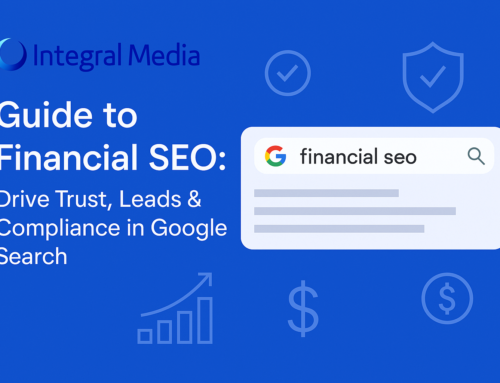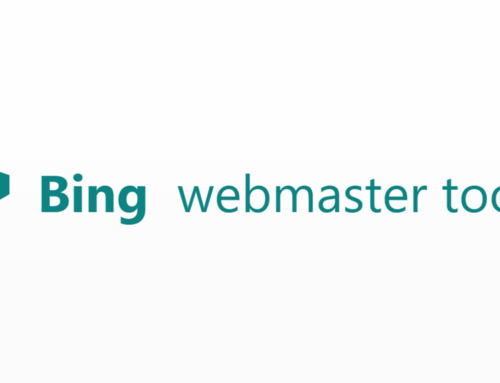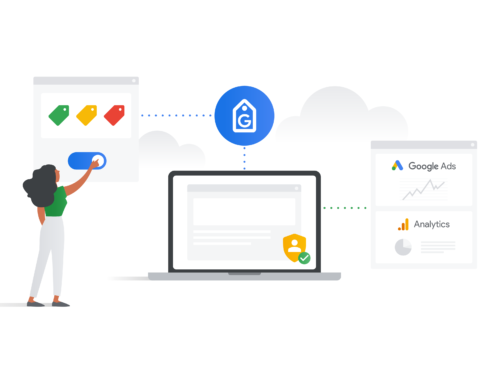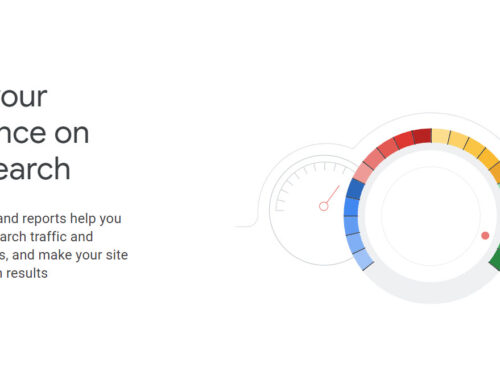Recently, Google’s E-E-A-T (experience, expertise, authoritativeness and trustworthiness) rater guidelines went through some significant changes. Originally E-A-T (expertise, authoritativeness and trustworthiness) “experience” was added in late 2022, reflecting current internet trends. Also, “trustworthiness” was refocused to become the centre of the guidelines, as Google established that without trust the websites will likely never be shown to Google users.
SEO Best Practices
Search Engine Optimisation (SEO) has undergone significant changes over the years, particularly with the evolution of Google’s search quality rater guidelines known as E-E-A-T, which are Experience, Expertise, Authoritativeness, and Trustworthiness. These metrics have become critical factors in determining a website’s search engine rankings and ultimately its success in today’s digital landscape.
Initially, SEO was primarily focused on keyword density keywords, backlinks, and technical optimisation aligned with Google’s algorithms. However, Google’s algorithm updates over the years have increasingly prioritised E-E-A-T, particularly in industries where accuracy and trustworthiness are crucial, such as health and finance.
Content Quality Metrics
To succeed in today’s digital landscape, website owners and content creators must prioritise E-E-A-T in their SEO strategies. This includes ensuring their content is real, accurate, reliable, and well-researched for Google, establishing their experience, expertise and authority in their industry, building a strong reputation and community of followers, and prioritising user privacy and security.
Website owners and content creators must continuously monitor and adapt to Google’s algorithm updates, particularly those that impact E-E-A-T. This includes focusing on improving their content quality, building strong relationships with authoritative sources in their industry, and implementing practices that prioritise user experience and accessibility.
E-E-A-T has become an essential factor in SEO success in today’s digital landscape. By prioritising experience, expertise, authoritativeness, and trustworthiness in their SEO strategies, website owners and content creators can establish a strong reputation, build trust with their audience, and ultimately achieve higher search engine rankings and success.
E-E-A-T Principles
While the E-E-A-T is not technically a google search ranking factor, it is part of the algorithm so it is important that content creators follow the search quality guidelines and establish each 4 principles to rank highly among search engine results pages (SERPs).
Experience
Experience as part of E-E-A-T is the latest addition to Google’s quality rater guidelines, updated in December 2022. It indicates the level of the content creator’s first-hand knowledge of the subject, and can be used to judge the quality of the content produced.
For example, if you are writing a blog post about you travelling Europe, you need to prove that you have actually travelled around Europe and have that personal experience to draw upon. Similarly, if there is a review about your company, that person must be able to prove that they have worked with, or utilised your company in some aspect.
The first hand experience content provided should give valuable insight into the company or product. This will help prove the experience component of E-E-A-T.
Expertise
Expertise is a significant aspect of E-E-A-T that pertains to the level of knowledge and experience that a content creator or website owner has in their area of specialisation. Demonstrating expertise requires a deep understanding of the subject matter and staying abreast of the latest developments and research in that field.
For instance, a website offering medical advice on Google must have content creators with a high level of expertise in the medical field to provide accurate and reliable advice. This may necessitate having relevant qualifications, training, and experience in the medical profession.
Content creators can showcase their expertise by including information about their qualifications, certifications, and other credentials that validate their knowledge and experience. They may also provide references or links to reputable sources that support the information presented on their website or in their content.
Authoritativeness
Authoritativeness refers to the level of reputation, influence, and authority that a website owner or content creator has in their industry or field. An authoritative website or content creator is one that is recognised as a leader or expert in their field by Google and is seen as having a high level of credibility and trustworthiness.
To help build online authority and a positive reputation, website owners and content creators must work towards building a strong reputation as a trusted source of information.
This can be achieved through a variety of means, such as
- providing high-quality, relevant, and original website content
- engaging with their audience
- building a community of followers
- collaborating with other authoritative sources
- participating in industry events
Website owners and content creators can also establish their authority by being cited or referenced by other high authority websites in their field. This could include being mentioned in academic papers, industry publications, or other reputable sources.
It’s important to note that establishing authoritativeness is a long-term strategy that requires consistent effort and dedication. Website owners and content creators must continuously provide high-quality and valuable content for Google, engage with their audience, and build relationships with other authoritative sources in their field.
Trustworthiness
Trustworthiness is at the centre of the E-E-A-T concept that refers to the level of trust that a website or content creator can establish with their audience and Google.
A website or content creator is considered trustworthy when they provide reliable and accurate information, ensure the privacy and security of their users, and maintain transparency in their content and business practices.
Trust Signals And E-E-A-T
To improve site trustworthiness, website owners and content creators must prioritise the accuracy and reliability of their content for Google.
This can be achieved by fact-checking information, citing sources, and avoiding sensationalised or misleading headlines or content. They must also prioritise user privacy and security by implementing secure connections, using reputable third-party services, and avoiding practices that compromise user data or privacy.
Transparency is also a crucial aspect of trustworthiness. Website owners and content creators must be clear and transparent about their content and business practices. This includes providing clear information about their authors or contributors, disclosing any potential conflicts of interest, and being open about their funding sources and advertising practices.
Additionally, website owners and content creators must prioritise user experience by providing a user-friendly interface and ensuring that their content is accessible to all users, regardless of their abilities or devices.
Content Creation For E-E-A-T
Creating content that demonstrates E-E-A-T, alongside SEO speicalised content can help to improve your website’s visibility in Googles search engine results pages and increase user trust in your brand.
Here are some tips for creating content aligned with Google’s E-E-A-T algorithm:
Demonstrate Experience
Create content that shows relevant experience in the field you are writing in.
Be An Expert
Write content that showcases your expertise in your field. Make sure your content is accurate, up-to-date, and relevant to your target audience.
Show Your Authority
Establish yourself as a thought leader in your industry by writing about trending topics, sharing insights, and citing credible sources.
Build Trust
Be transparent and honest in your content, and provide detailed information about your products or services. Use social proof like customer testimonials or case studies to demonstrate your credibility.
Use Proper Citations
When referencing other sources in your content, be sure to use proper citations and give credit where credit is due.
Create Long-Form Content
Longer content tends to perform better in search results, as it provides more in-depth information and shows a greater level of expertise.
Optimise For Readability
Use clear and concise language, break up your content into short paragraphs, and use headings and bullet points to make it easy to scan.
Update Your Content Regularly
Keeping your content up-to-date shows that you are committed to providing accurate and relevant information to your audience.
User Experience And E-E-A-T
Similar to SEO, user experience (UX) and E-E-A-T are two important things to consider for websites and online platforms to be successful.
UX is all about how easy and enjoyable it is for users to interact with a website or app. This means things like how fast the website loads, if it looks good on mobile if users can find what they’re looking for easily, and if the content is high-quality and useful. When a website has good UX, users are more likely to stay on the website longer, which can lead to better conversion rates and positive reviews.
E-E-A-T, on the other hand, is about the quality and credibility of the content on a website. Google uses E-E-A-T as part of its ranking algorithm to make sure high-quality and trustworthy content is promoted to users.
If you focus on both UX and E-E-A-T, you can improve your chances of ranking well in search engines and providing a positive experience for your users. Good UX can keep users engaged and on the website longer, while high-quality content that demonstrates expertise, authoritativeness, and trustworthiness can increase credibility and user trust.
Schema Markup And E-E-A-T
Schema markup is a type of code you can add to your website that helps Google’s search engines better understand what your content is all about. This can make it easier for search engines to show your content to people who are searching for related topics. And when more people can find your content, it can help establish your expertise in a particular subject area.
Adding schema markup to your website can also indirectly support your website’s Authoritativeness and Trustworthiness.
By providing more information about your authors and contributors, such as their:
- education
- professional experience
- other credentials
You can help build trust with users and establish your website’s authority in a particular field.
But it’s important to keep in mind that schema markup alone is not enough to establish E-E-A-T and SEO. You still need to have high-quality content that demonstrates expertise, authoritativeness, and trustworthiness in order to truly establish E-E-A-T.
E-E-A-T And Website Performance
E-E-A-T and SEO mainly focuses on the quality and credibility of a website’s content. However, website performance can also play a role in indirectly supporting E-E-A-T.
Website performance refers to how fast a website loads, page quality, how well it functions on different devices, and how easy it is to navigate. Poor website performance can negatively impact the user experience, which can hurt the website’s E-E-A-T. Users may leave the site if it takes too long to load or if they find it difficult to navigate, which can lead to lower engagement and less credibility for the website.
Website’s Visibility And Credibility
Conversely, good website performance can improve the user experience and indirectly support E-E-A-T and SEO. When users have a positive experience on a website, they are more likely to engage with the content and share it with others. This can increase the website’s visibility and credibility, which can indirectly support E-E-A-T.
Therefore, it’s important to prioritise website performance alongside high-quality and trustworthy content in order to improve overall E-E-A-T. By doing so, you can create a website that not only provides valuable content but also delivers a positive user experience.
SEO Trends And E-E-A-T
E-E-A-T is becoming increasingly important as search engines like Google prioritise high-quality and credible content.
One SEO trend that supports E-E-A-T is the focus on topic clusters rather than individual keywords. By creating content that demonstrates expertise on a particular topic, you can establish your website’s authority and trustworthiness in that area.
Another trend that supports E-E-A-T is the use of multimedia content, such as
- Videos
- Images
- Social media platforms
Can improve the user experience and help convey complex information in a more engaging way. This can indirectly support E-E-A-T by increasing user engagement and improving the quality of the content.
Local SEO is becoming more important as more users search for businesses and services in their area. Establishing your website’s authority and trustworthiness in your local market can improve your chances of ranking well in local search results.
Focusing on E-E-A-T when implementing SEO strategies can help ensure that your website provides high-quality, credible content that satisfies both Google quality raters and users.
At Integral Media, we are an agency of SEO experts who deliver high quality marketing tactics to its clients. As a google certified SEO agency, we can provide content aligned with SEO algorithms and E-E-A-T principles. Get in touch with us today to get started on your Google checklist today.






























